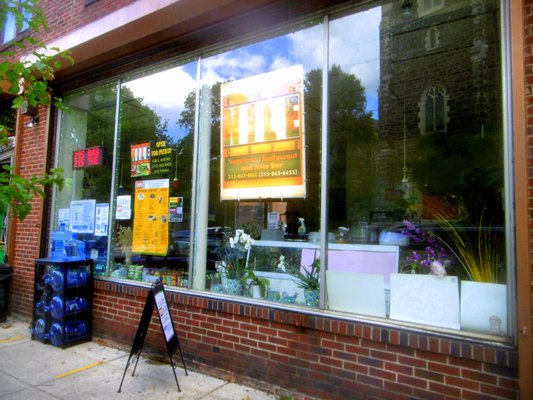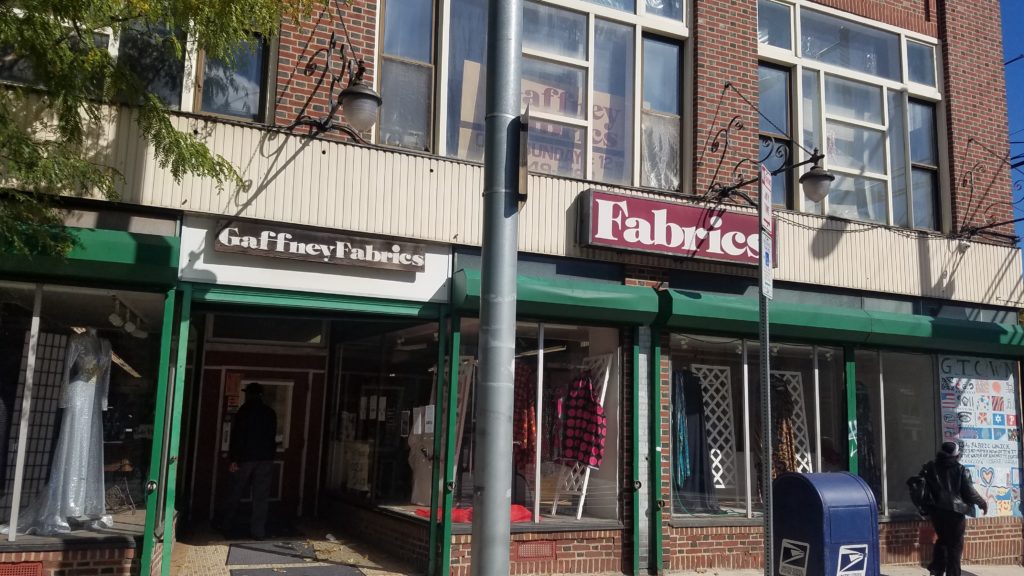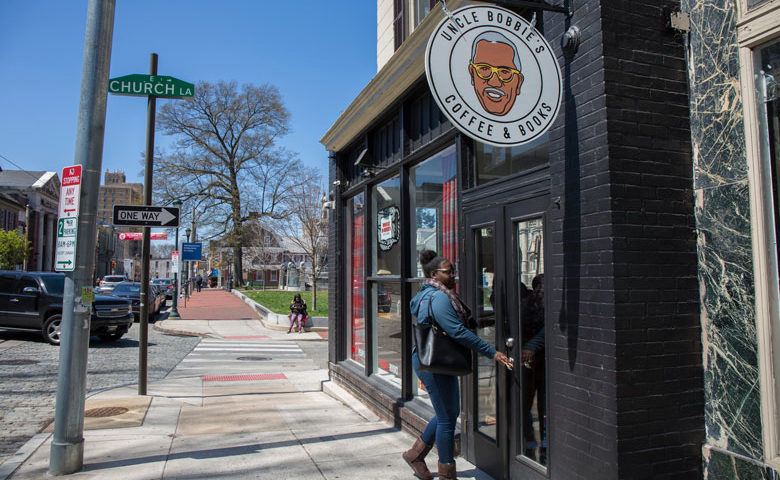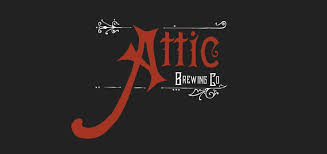Local Businesses
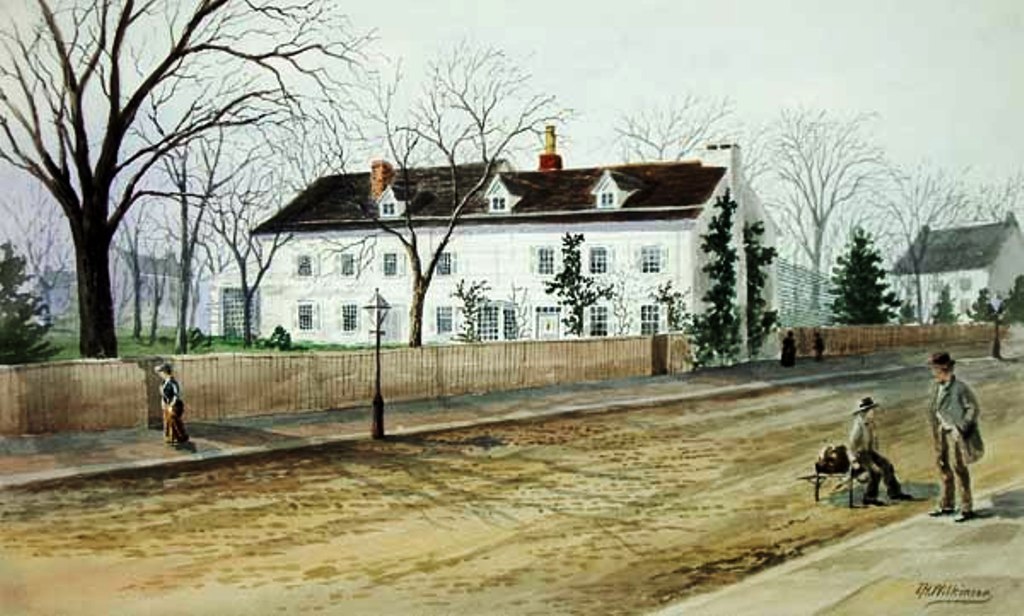
When William Penn sold Daniel Pastorius the tract of 5,700 acres that became Germantown in 1683 the land was densely forested. Cutting a path through the oak and pine trees was an important colonial highway, often called “The Great Road” and today known as Germantown Avenue. Germantown Avenue was laid over an Indigenous American footpath which ran from the Delaware River as far west as Reading, PA. It is this path that the first German settlers traveled to reach their new home in the dense Pennsylvania forest.
Since before European settlement, the avenue has been a site of commerce. Early Wyck residents relied on trade with earlier settlers and Leni Lenape people to survive. Today, over 300 years later, the avenue is still an important source of community life and commerce in Germantown.
Listen or read the following oral history excerpts and Wyck object highlights to hear more about the place of the Avenue in the life of the neighborhood.
Gathering at the Salon
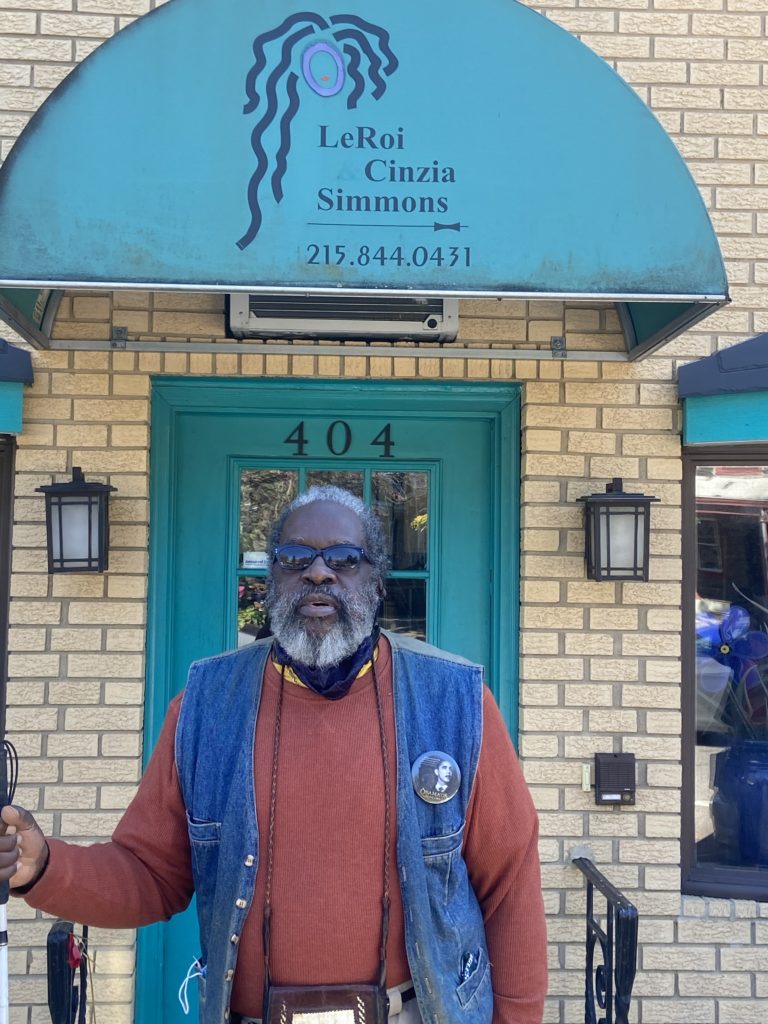
“I had the unique experience of running a large salon chain, it was “Soul Scissors.” And because I was a barber, I went in to Soul Scissors, I already knew cutting hair. But I learned some new techniques in cutting hair and the tradeoff with the management at “Soul Scissors” was that I would teach them how to cut hair and they would teach me how to do straight hair, women’s hair mostly, and other ways of enhancing beauty. You know, so I took that challenge and for a few years I was able to work in there and learn some techniques, some advanced techniques they were doing hair. It was a Vanguard business.
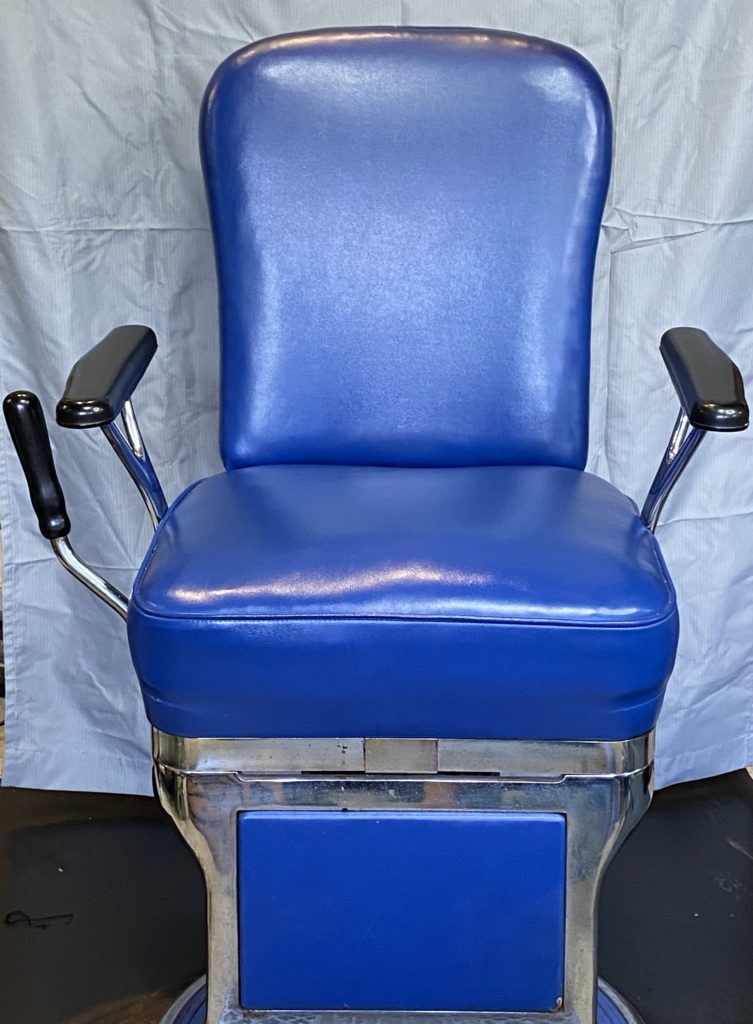
And so when I separated from that business, um, I went to Africa in ’76 and it blew my mind. It changed my mind about working for somebody else. And I came back and opened up a shop, a small shop. But the unique experience gave me the opportunity to offer a diverse group of people styles. I had men and women. And men and women were able to come in a place that was neutral.
I was able to give them an opportunity to get to know each other because we work by word of mouth. Everybody came from a group a small group of customers I had when I left Soul Scissors. I mean a real small group like 3 or 4 people. And everybody’s likes levels of separation from that group. And so, everybody who came in I knew, and it grew into somebody in the shop knew and I knew it was all referrals. I did not want to take any walk-in customers. I wanted people to be referred to us. And that kept it intimate. And it kept it, um, you know above the average salon, so everybody knew one another. If you question customers who come forty years later they would say so and so would introduce me to so and so which introduced me to so and so and we would kick it all the way back to the original person who I knew. I have had people meet their cousins and their grandmother and you know we start with whose the oldest person in your family and they say they give me the name and I say oh… you in the same family as so and so whose getting their haircut? And they oh that’s my grand aunt. It was wonderful! To see people interacting and it was a great area like that!”
– LeRoi Simmons
From Wyck Historic House, Garden & Farm
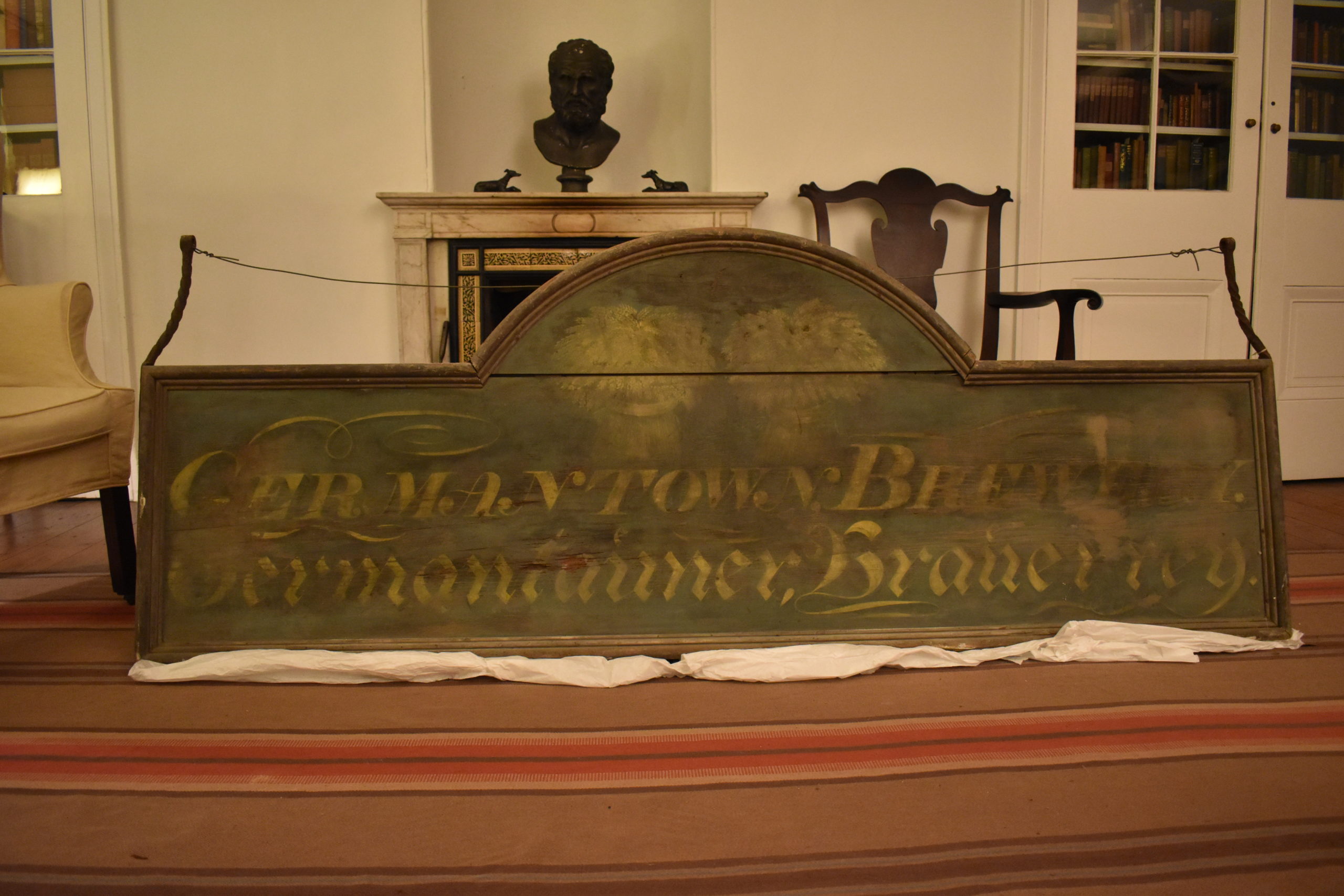
Germantown Avenue has always been a place of bustling businesses and for a time, from the 1790s until the 1840s, Wyck was a stop on neighbors’ errand runs. The Germantown Brewery/ Germantauner Brauerrey Sign, dating to circa 1794, hung on Germantown Avenue, inviting visitors and neighbors to purchase ales and porters from the brewhouse that stood next to the rose garden. 1794 was a momentous time for the Wistar-Haines family. This brewery sign was constructed when Wyck’s fifth generation resident, Caspar Wistar Haines (1762 – 1801), moved his family and business to Germantown to escape the miasmas of the Yellow Fever in the city which had claimed the lives of both his parents.
Made of wood and iron and painted in German and English, the sign speaks to the bilingual residents of the area at the turn of the 19th century. Notice how even the two types of fonts target different audiences. In Germantown, the brewery prospered until the 1840s when the temperance movement pressured its closure and demolition. Receipt books from the brewery reveal the names of many neighbors who ventured down the avenue to purchase their brews from Wyck.
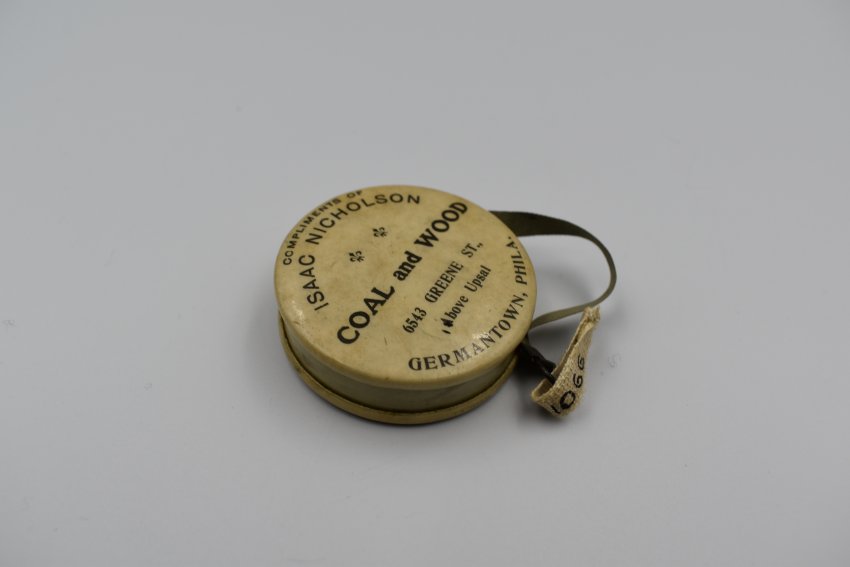
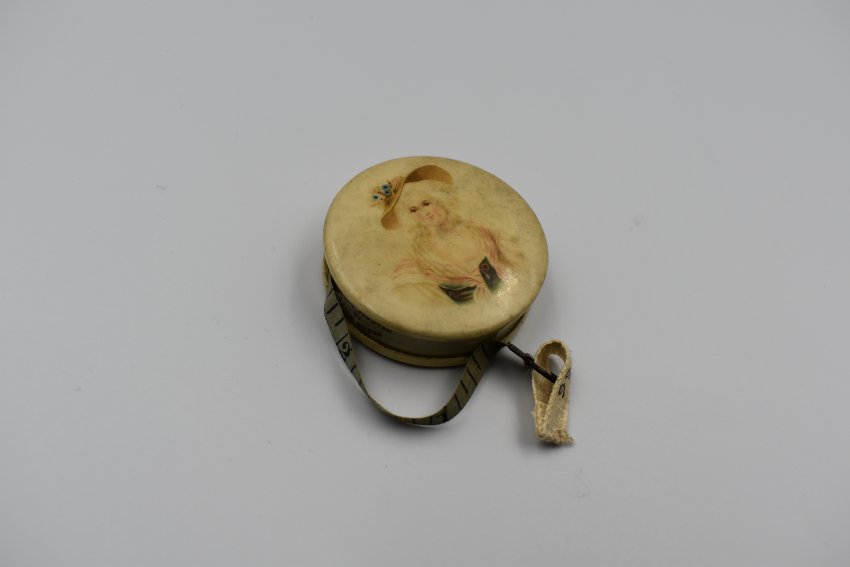
This tape measure has text on one side that reads, “Compliments of Isaac Nicholson / Coal and Wood / 6543 Greene St., Above Upsal / Germantown, Phila.” The other side features a painting of a woman wearing a hat. Promotional items such as this measuring tape help us understand the history of the commercial landscape in Germantown and the business networks of the Wistar-Haines family.
Germantown Department Stores
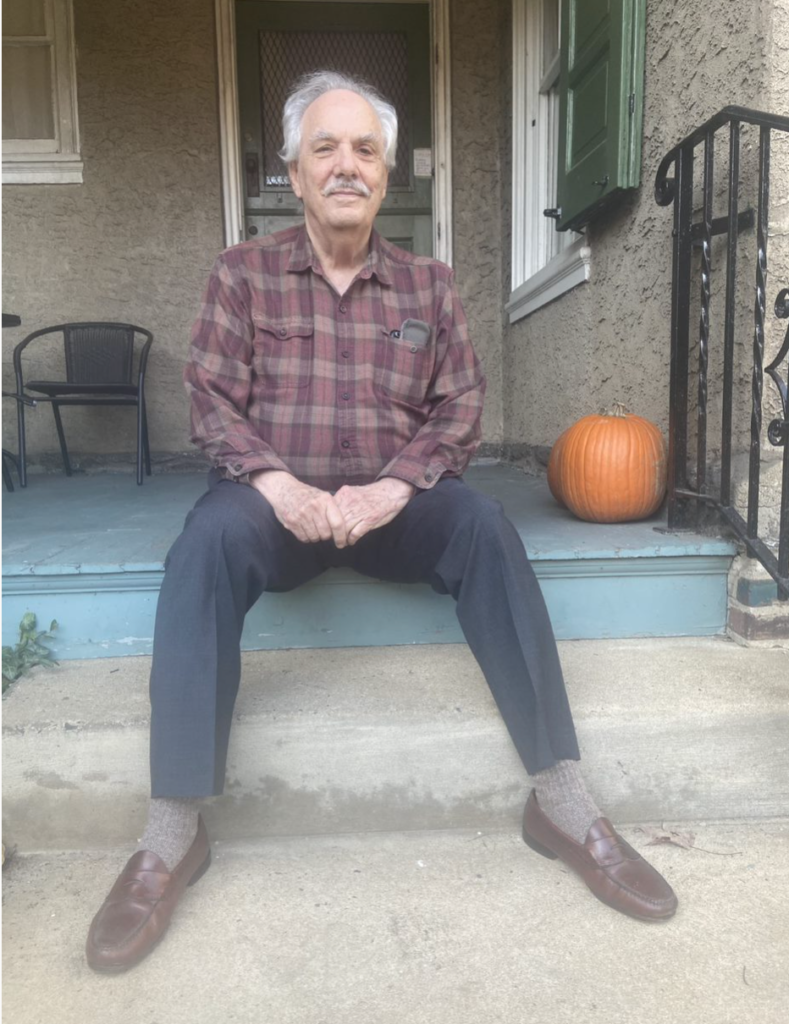
“Germantown and Chelten and Germantown and Wayne, and Germantown and Green, Chelten and Green, that is what I meant, had Allen’s Store and Germantown and Chelten had Rowell’s Department Stores. And people, my understanding, I didn’t realize this when I was young, but people would come in from the suburbs to shop at these department stores. Germantown and Chelten was a place that people came to, it was easy to get to with transportation. You could drive in, cars, cars were new at that time. Lots of people didn’t have cars, but they were beginning to.
Suburbs were developing at that time, but people would still come in there it was easier than Center City we had Wanamaker’s and so forth. So, Rowell’s was a great department store. I had a friend of the family one of my mother’s close friends worked there for many years as a salesperson. Down the street you had Jimmy Jones and Sons. It later became Jimmy Jone’s and Daughters when they bought it out and that was down by, past School House Lane. It is still there, I think. It is at maybe Colter and Germantown Avenue. They sold fabric and notions there. We had two Woolworths, one on Germantown Avenue one on Chelten Avenue at the time. Anything you a wanted you could get in Germantown. It was unbelievable.
Allen’s was another department store which was at Green, the building is still there, Green and Chelten. When I got out of the army it was still there because I had nothing when I got out of the army in ’66. I had to go get bedding at Allen’s and I walked home with it. I had no car; I didn’t have anything. So, Germantown and Chelten that whole strip was extremely busy and was supplied by two train lines the Reading and the Pennsylvania. SEPTA didn’t own them yet and the collapse was yet to come.”
– James Tichenor
“Well, other than the ever-profound racial diversity that exists here, on so many levels, the economic differences are really important. We have a large I guess, poverty. We have a lot of poverty in Germantown. And it is significant and it is for all kinds of reasons. It’s because of unemployment, it is because of we have a large elderly community living on very fixed incomes but we have a good proportion of economically challenged families. And then, we have middle class families we probably have some wealthy families too. But it is significant to me during the years I have lived here, it wasn’t a gentrified neighborhood. And maybe some people would call it run down, parts of it.
When I moved in, in the late 60’s a lot of things were ending. Department stores that were existing here were closing. And a lot of other things also were changing and shutting down. There was a Sears Roebuck here that was shutting down, and Allen’s Department Store, Rowe’s Department Store. Movie theater was shutting down the restaurants… So, it was going through whatever that is and it remained that way during the decades that I have lived here until recently, economically a stalemate, and not a very good one. A lot of something undermining what would have been the natural progress of the community in a healthy way.”
-Paula Paul
The End of an Era?
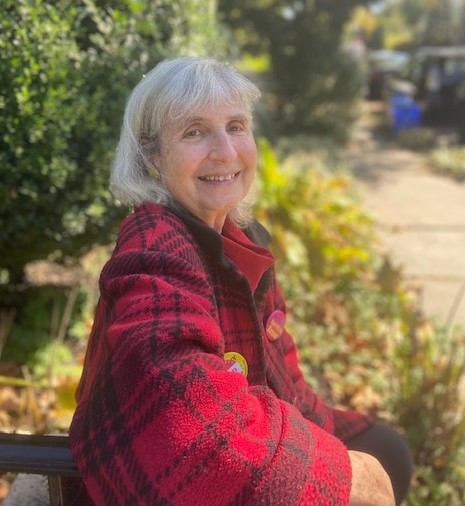
Germantown Avenue Today
Explore more aspects of Germantown’s unique community past and present through the portals below!
What memories do you have conducting commerce in Germantown? Feel free to comment below, or if you'd like to add an oral history to this exhibit email info@wyck.org!
Copyright © 2024 Wyck. Powered by Museo Lite

